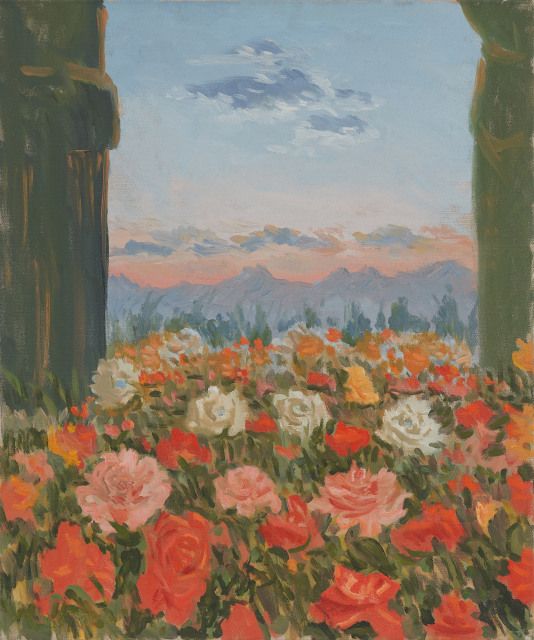PIFO Gallery is pleased to present the exhibition entitled Ni Jun: Paintings Smell Book
Fragrance from April 22 to June 4, 2023. Curated by Bao Dong, this exhibition is Ni Jun’s third
solo exhibition held at PIFO Gallery.
-----------------------------------------------
Ni Jun’s paintings appear to be in the style of painting from the 19th century. It seems that he
lived in the same era as artists like Édouard Manet and Oscar-Claude Monet although Ni
leads a modern life in today’s world of the 21st century. Ni’s works entail an air of nostalgia
and tribute to the past while indicating a climate of distrust of the new era and displaying an
affinity with the known world. Indeed, a sensibility of nostalgia and stubbornness could be
considered a virtue.
Like the Impressionist paintings, Ni’s paintings are characterized by the style of Pleinairism
(which employs outdoor painting or the capturing of outdoor lighting). Even though not all of
his paintings are works from life, Ni follows a style of realistic painterly painting to depict
figures and objects drawn from his memories and/or imagination. As a result, we come to see
a series of paintings that are descriptive yet demonstrate a sense of darkness, which serve to
constantly remind us that the paintings of the past centuries still hold value today. Ni’s
paintings are mostly about figures, landscapes, and objects, or a combination of these
subjects. In a strict sense, he is essentially a studio painter, which is not to say he only makes
paintings in his art studio; instead, Ni studies the conventional subject matters in detail over
and over again. For Ni, painting is not only a form but also an indefinite game in which players
compete with each other within the rules from one generation to the next.
Therefore, in Ni’s paintings, we can see sentiments of memorialization as well as a
conceptual glossary. Ni threw himself into an old collective tradition that was short-lived yet
characterized by heroism. Within the tradition, painters were beyond the categories of
craftsmen in the past or “artists” of today; they ventured into art only within a few limits and
they only engaged with their peers.
I had been unsure about the small dimensions of Ni’s paintings which reminded me of Camille
Corot’ s works until I paid a visit to his studio. I then realized that his apartment was where he
created paintings. In addition, he had another apartment dedicated to painting, which was a
10-minute walk away. Painting has become a part of his daily life; therefore, we see in his
paintings so many daily objects—such as flowers and food— and his friends and
acquaintances. He even made a painting of the quarantine hotel room where he stayed. Of
course, there is one subject that a painter must deal with: the painter himself.
Such a living room that combines a painter’s painting studio and their everyday life reminds
us of a study used by the literati in ancient times of China. Like painting studios, salons
played a central role for painters in the 19th century, which functioned as a painting studio
and a sitting room. The essential dual functions of a literati study are to create and to
appreciate, as evidenced in gatherings of literati.
Ni Jun creates paintings in his library-like studio, which is not only the home of his own but
also attracts visitors with a sincere interest in painting and respect for his art.
April, 2023
*Translated from Chinese by Ma Zhengtang.
Ni Jun, born in Tianjin in 1963, lives and works in Beijing. In 1979, Ni became one of the young art
students at the High School of Central Academy of Fine Arts(CAFA) after the Cultural Revolution and graduated from the Central Academy of Arts and Design (now the Tsinghua Academy of Arts and Design / Tsinghua University) majoring in mural painting. Ni studied with artists like Du Jian, Wang Dejuan, Gao Yaguang and Yuan Yunfu before he went to the Mason Gross School of the Arts, Rutgers University in New Jersey and spent two years of MFA program with Leon Golub, Peter Stroud and Geoffery Hendricks. Ni Jun had lived in New York City and Los Angeles for more than fifteen years and he had taught at schools like MGSA of Rutgers, Drew University, Parsons School of Design, CAFA, TAAD among others.
Bao Dong, born in Anhui in 1979, graduated from the Art History Department of the Sichuan Fine Arts Institute in 2006. He is an active art critic and curator of the new generation in China, co-founder and artistic director of Beijing Contemporary Art Fair.

